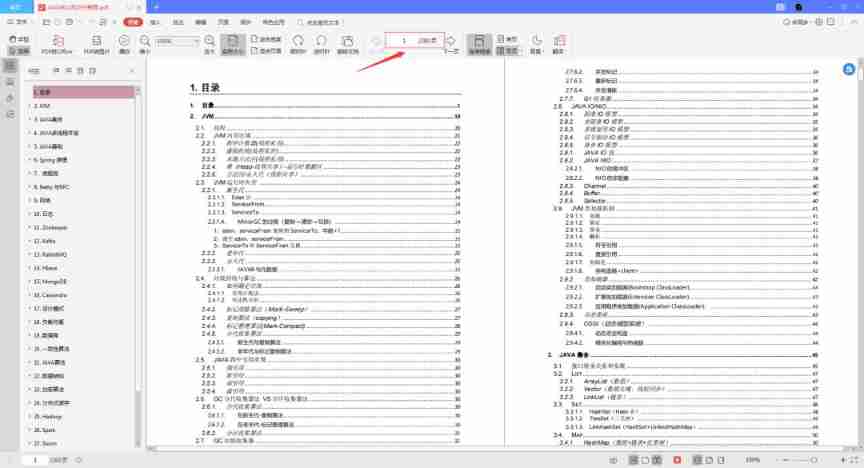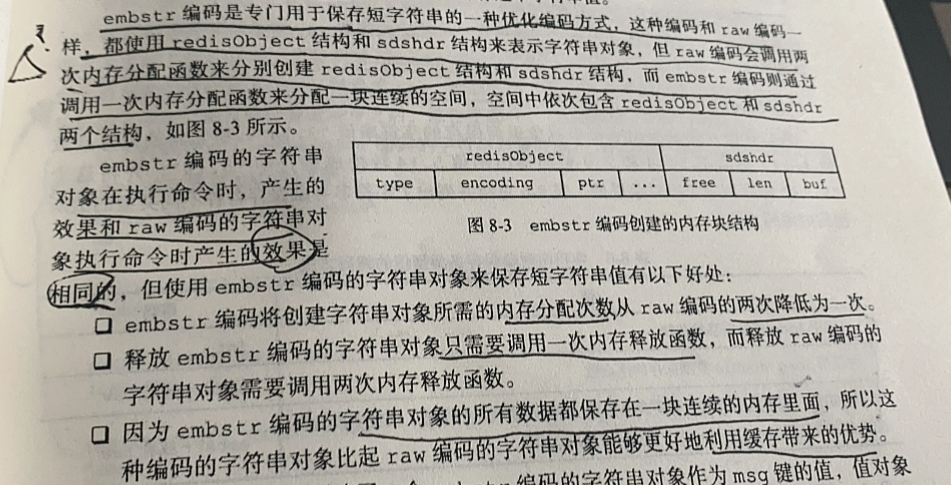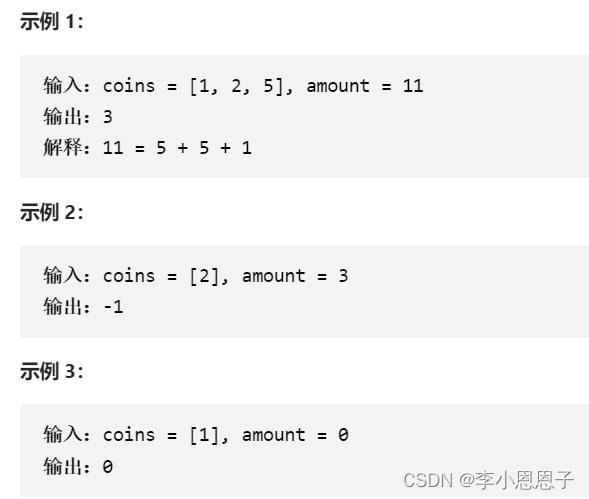String Underlying implementation
string stay C++ It is also an important knowledge , But I want to use it well , You need to know how its bottom layer is written , In order to better use this string, So let's do it this time string The bottom of the , however string There are many interface functions , We cannot achieve it all at once , The main thing to realize this time is its common interface , And important interfaces The functions realized this time are :string Constructor for , copy constructor , Destructor , iterator ( It is divided into const And non const Two versions ),reserve,push_back,append,+=( It is divided into += Characters and strings ),clear,swap, Stream insertion , Stream output ,c_str,size,capacity,empty,resize,[] overloaded ( Not for const And non const Two versions ),<,<=,>,>=,==,!= overloaded ,find( It is divided into two versions: search character and string )insert( There are two versions of insert character and insert string ),erase.( As for how many have been achieved , Not here , Quite a lot of ...
First, get ready : Because it needs to be implemented separately string The bottom of the , Therefore, in order to avoid the connection with string Conflict , So we encapsulate it in a separate namespace , Secondly, its four private members :_str( Store string ),_capacity( Record the capacity ),_size( Record valid characters ),npos( It is needed in some functions )
One : Constructors
1 Its effective number and size is its length , use strlen Calculation is enough .
2 Open a space ( here +1 To give \0 Reserved location When opening space, you must give \0 One more )
3 Copy the string to the open space
1 string(const char* str = "")
2 :_size(strlen(str))
3 , _capacity(_size)
4 {
5 _str = new char[_capacity + 1];//+1 It's for '\0' Leave a place string Open space must be more than one position
6 strcpy(_str, str);
7 }
Two : Copy structure
Copy structures are divided into : Traditional writing and modern writing
The traditional way of writing : The structure is the structure , The copy is the copy
1 Its effective number and size is its length , use strlen Calculation is enough .
2 Open a space ( to \0 Open one more space )
3 Copy the string to this space
4 Assign this space to _str
5 It's size And capacity And s Sync
1 string(const string& s)
2 :_size(strlen(s._str))
3 ,_capacity(_size)
4 {
5 char* tmp = new char[_capacity + 1];
6 strcpy(tmp, s._str);
7 _str = tmp;
8 _size = s._size;
9 _capacity = s._capacity;
10 }
Modern writing : utilize tmp Copy , Let them Exchange
1 Because the copy structure is copied to a nonexistent , So initialize them first , So that they can exchange
2 utilize tmp Construct a string that needs to be copied
3 let _str And tmp In exchange for
string(const string& s)
:_str(nullptr)
,_size(0)
,_capacity(0)
{
string tmp(s._str);
swap(tmp);
}
( Modern writing is more recommended here )
3、 ... and : Destructor
1 When str Not empty
2 Release , And leave it empty , Then set its valid characters and size 0
1 ~string()
2 {
3 if (_str)
4 {
5 delete[] _str;
6 _str = nullptr;
7 _size = _capacity = 0;
8 }
9 }
Four : Assignment overload
It is divided into traditional writing and modern writing ① and ②
The traditional way of writing
1 When you don't assign values to yourself
2 Open a space
3 Copy the string into the space
4 release _str Space
5 hold tmp Space assigned to _str
6 And then _str The valid characters and size of the assigned string are the same
7 return
1 string& operator=(const string &s)
2 {
3 if (this != &s)
4 {
5 char* tmp = new char[s._capacity + 1];
6 strcpy(tmp, s._str);
7 delete[] _str;
8 _str = tmp;
9 _size = s._size;
10 _capacity = s._capacity;
11 }
12 return *this;
13 }
Modern writing ①
1 utilize tmp Construct a string
2 Give Way _str And tmp In exchange for
3 return
1 string& operator=(const string &s)
2 {
3 string tmp(s._str);
4 swap(tmp);
5 return *this;
6 }
Modern writing ②
1 There's something special here , Because it needs direct exchange without change s The data of , There is no need to quote , Instead, it returns by passing a value
2 hold _str Exchange with string
3 return
1 string& operator=(string s)
2 {
3 swap(s);
4 return *this;
5 }
5、 ... and :swap
Because it is necessary to complete the exchange operation of three private members , therefore swap Exchange three private members directly in
Here we need to use the Library , But the compiler will default to use the swap, So we need to add std, Use the Library swap
1 void swap(string& s)
2 {
3 std::swap(_str, s._str);
4 std::swap(_size, s._size);
5 std::swap(_capacity, s._capacity);
6 }
6、 ... and :c_str
Because stream insertion has not been implemented , So the demonstration can print with this function
Because this function just prints , Without changing the string , So add const, Prevent unexpected changes
1 const char* c_str()const
2 {
3 return _str;
4 }
7、 ... and :reserve
This function is specially used for capacity expansion .
1 When the required value is greater than space , It needs to be expanded
2 Create a space ( by \0 Open one more space )
3 hold _str Copy to new space
4 And then _str Space release
5 Assign the new space to _str
6 Put the new size capacity Change to the expanded size
1 void reserve(size_t n)
2 {
3 if (n > _capacity)
4 {
5 char* tmp = new char[n + 1];
6 strcpy(tmp, _str);
7 delete[] _str;
8 _str = tmp;
9 _capacity = n;
10 }
11 }
8、 ... and :push_back
This function is used to insert a character at the end
1 First judge whether the space is full
2 utilize reserve Open space ( There are special circumstances here : Sometimes the space we open is 0 Then continue with 2 Double expansion , It cannot be expanded (0*n=0) So when capacity by 0 when Capacity expansion 4 If not for 0 Double expansion
3 After capacity expansion or when capacity expansion is not required Add the characters to be added in the place of valid characters
4 Then move the valid characters back
5 Add again \0 Otherwise, there is no \0 Can't stop
1 void push_back(char c)
2 {
3 if (_size == _capacity)
4 {
5 reserve(_capacity == 0 ? 4 : _capacity * 2);
6 }
7 _str[_size] = c;
8 ++_size;
9 _str[_size] = '\0';
10 }
Nine :+= heavy load
In practical use ,+= With the function of push_back identical , also += It is more convenient , So we need to provide += The function of
1 Because the actual function is the same , It can be reused directly push_back that will do
2 Because you need to support continuous += So we need to go back
1 string& operator+=(char c)
2 {
3 push_back(c);
4 return *this;
5 }
Ten :append
This function is used to add a string
1 Calculate the valid characters and the length of the string to be added
2 If the length of the valid character and the string to be added is greater than the actual space
3 So we need to expand , Expand string length + Valid character length is enough
4 Copy the string to the end of the valid character
6 The valid characters are also changed to valid characters and the length of the string to be added
1 void append(const char* str)
2 {
3 int len = _size+strlen(str);
4 if (len > _capacity)
5 {
6 reserve(len);
7 }
8 strcpy(_str+_size, str);
9 _size = len;
10 }
11、 ... and :+= overloaded
+= The addition of strings is also better than append Use more times , So we also need to provide
The actual functions here are the same , So reuse directly
1 Because you want to support continuous +=, So we need to go back
1 string& operator+=(const char* str)
2 {
3 append(str);
4 return *this;
5 }
Twelve :clear
Used to clear data
Clear data , But there is no room to shrink , Just clear the data in the space , This is something to be aware of
1 Add... In the first place \0 When printing \0 Will stop , The following data cannot be printed
2 The effective number is modified to 0
1 void clear()
2 {
3 _str[0] = '\0';
4 _size = 0;
5 }
13、 ... and : Provide query size
This function provides private members size Size
Because there is no need to modify , So add const
1 size_t size()const
2 {
3 return _size;
4 }
fourteen : Provide query capacity
This function provides private members capacity Size
Because there is no need to modify , So add const
1 size_t capacity()const
2 {
3 return _capacity;
4 }
15、 ... and :empty
It provides the function of judging empty
1 When _str When the string is empty return true
2 When _str When it is not an empty string return false
1 bool empty()const
2 {
3 if (_str == "")
4 {
5 return true;
6 }
7 else
8 {
9 return false;
10 }
11 }
sixteen :resize
function : Capacity expansion , And initialize
When the size to be expanded , Smaller than the actual size , Then it is necessary to put the actual size - To expand the unused space, clear the data
1 The size of Dangdang to be expanded , Smaller than the actual size
2size Change to the size to be expanded
3 Add \0
4 When the size to be expanded is larger than the actual size
5 Capacity expansion n Size
6 Start with the actual valid characters , Until the actual space size ends
7 All revised to c ( If you don't pass parameters , The default is \0)
8 The actual valid characters are changed to n
9 Change the valid characters to \0
1 void resize(size_t n, char c = '\0')
2 {
3 // When n Less than size when
4 if (n < _size)
5 {
6 _size = n;
7 _str[_size] = '\0';
8 }
9 else// When n Greater than size when
10 {
11 if (n > _capacity)
12 {
13 reserve(n);
14 }
15
16 for (size_t i = _size; i < n; i++)
17 {
18 _str[i] = c;
19 }
20 _size = n;
21 _str[_size] = '\0';// Add characters Manually add \0
22 }
23 }
seventeen :[] heavy load
This function is divided into non const Version and const edition
Not const edition
1 The size to be accessed cannot exceed valid characters Need to assert
2 return _str The value of the corresponding subscript
1 char& operator[](size_t index)
2 {
3 assert(index < _size);
4
5 return _str[index];
6 }
const edition
In some places, the access subscript does not need to be modified , So we need to provide const edition
1 const char& operator[](size_t index) const
2 {
3 assert(index < _size);
4
5 return _str[index];
6 }
eighteen :<,<=,>,>=,==,!= overloaded
Use here strcmp() function if _str<s._str return <0 Value Equal return 0 Greater than return >0 Value
And other functions can be reused directly
1 bool operator<(const string& s)
2 {
3 return strcmp(_str, s._str) < 0;
4 }
5
6 bool operator<=(const string& s)
7 {
8 return _str < s._str || strcmp(_str, s._str) == 0;
9 }
10
11 bool operator>(const string& s)
12 {
13 return strcmp(_str, s._str) > 0;
14 }
15
16 bool operator>=(const string& s)
17 {
18 return _str>s._str|| strcmp(_str, s._str) == 0;
19 }
20
21 bool operator==(const string& s)
22 {
23 return strcmp(_str, s._str) == 0;
24 }
25
26 bool operator!=(const string& s)
27 {
28 return !(_str == s._str);
29 }
nineteen :find
function : return c stay string The first place in
1 from pos Start looking at the location , If characters are found c return , If the cycle ends , It means no , return npos( representative -1)
1 size_t find(char c, size_t pos = 0) const
2 {
3 assert(pos <= _size);
4 for (; pos <= _size; pos++)
5 {
6 if (_str[pos] == c)
7 {
8 return pos;
9 }
10 }
11 return npos;
12 }
twenty :find
Function returns substring s stay string The first place in
Use here strstr function , Find string s
If not found Returns an empty You need to determine
If it is empty , return npos
If not be empty Return to where it first appeared
First occurrence -_str(*)
1 size_t find(const char* s, size_t pos = 0)
2 {
3 const char* p = strstr(_str + pos, s);
4 if (p == nullptr)
5 {
6 return npos;
7 }
8 else
9 {
10 return p - _str;
11 }
12 }
The 21st :insert
function : stay pos Insert character in position c, And return the position of the character
1 First judge whether the space is full
2 When it is full, it needs to be expanded , A special case When capacity by 0 when Capacity expansion 4 When not for 0 when ,2 Double expansion
3 Define index end Start after valid characters (\0 Later on Valid characters are recorded \0)
4 Move a number back , end Forward , Continue to move the next number
5 When you reach the position where you need to insert , stop it
6 At the position to be inserted Insert characters c
7 Valid characters +1
8 return
string& insert(size_t pos, char c)
{
assert(pos <= _size);
if (_size == _capacity)
{
reserve(_capacity == 0 ? 4 : _capacity * 2);
} size_t end = _size + 1;
while (end > pos)
{
_str[end] = _str[end-1];
--end;
}
_str[pos] = c;
++_size; return *this;
}
Twenty-two insert
function : stay pos Insert string at position str, And return the position of the character
1 When the position to be inserted is greater than the valid character It needs to be asserted that
2 Calculate the length of the added string
3 If the length of valid characters plus the added string is greater than the actual size
4 The length of the expanded valid characters plus the added string is greater than the actual size
5 Define index end From valid characters +len ( This is to have enough space to insert strings )
6 When end here we are pos+len-1 Stop where you are
7 Move each character len A place
8end-- Continue to move to the next position
9 use strncpy function , Copy the string in
10 Valid characters plus the length of the string
11 return
1 string& insert(size_t pos, const char* str)
2 {
3 assert(pos <= _size);
4 size_t len = strlen(str);
5 if (len+_size > _capacity)
6 {
7 reserve(len+_size);
8 }
9
10 size_t end = _size + len;
11 while (end>pos+len-1)//-1 It's because of one \0
12 {
13 _str[end] = _str[end-len];
14 end--;
15 }
16 strncpy(_str + pos, str, len);
17 _size += len;
18
19 return *this;
20 }
23 :erase
1 When the position to be deleted is greater than the valid character To assert
2 When the position is not given or the length to be deleted is greater than the valid characters
3 Directly in pos Position plus \0 Delete directly pos Later data
4 The valid characters are modified to pos
5 If it is not greater than the valid character , When you want to delete some strings
6 Give Way begin from pos+len( Start at the end of the string to be deleted )
7 Cover the front from begin-len Start overlay at )
8begin++ Continue to begin The number of covers the front
9 until begin There are valid characters
10 Valid characters minus the length of the string to be deleted
11 Add \0 Always delete , Add characters these cannot be added automatically \0 Of Must be added manually \0
12 return
1 string& erase(size_t pos, size_t len=npos)
2 {
3 assert(pos < _size);
4 if (pos == npos || pos + len > _size)
5 {
6 _str[pos] = '\0';
7 _size = pos;
8 }
9 else
10 {
11 int begin = pos + len;
12 while (begin < _size)
13 {
14 _str[begin - len] = _str[begin];
15 ++begin;
16 }
17 }
18 _size -= len;
19 _str[_size] = '\0';
20
21 return *this;
22 }
Twenty-four : iterator
Divided into non const Version and const edition
Not const edition
take char* Rename it to iterator
The iterator is begin end
begin Returns the first
Go straight back to _str that will do
end Return tail
Add valid characters to the return header
1 typedef char* iterator;
2
3 iterator begin()
4 {
5 return _str;
6 }
7
8 iterator end()
9 {
10 return _str + _size;
11 }
const edition
speak char* Rename it to const_iterator
I just have to add const that will do
1 typedef const char* const_iterator;
2 const_iterator begin() const// To provide const And non const Two versions
3 {
4 return _str;
5 }
6
7 const_iterator end() const
8 {
9 return _str + _size;
10 }
twenty-five : Stream insertion 、 Stream extraction
Stream extraction
Because you need to match , So it needs to be implemented outside the class
1 Because continuous extraction should be supported So want to use ostream& As return type
2 Use return for Print with this
3 return
1 ostream& operator<<(ostream& out, const string& s)
2 {
3 for (auto k : s)
4 {
5 out << k;
6 }
7 return out;
8 }
Stream insertion
Because you need to match , So it needs to be implemented outside the class
1 Create a character
2 Characters are used to extract Because characters cannot be separated by spaces To prevent conflict So we need get In exchange for behavioral segmentation
3 establish buff Array Initialize to \0
4 Define index i
5 When not with spaces When changing behavior conditions
6 Put the characters into the array respectively
7 When the array is full
8 Say that the array is added as a string s
9 Let's talk about it again buff All overloads are \0
10 Index overload is 0
11 After the end of the cycle , Continue inserting into ch
12 When there are less than full characters left , Add to s Inside
13 return
istream& operator>>(istream& in, string& s)
{
char ch;
ch = in.get();
char buff[128] = { '\0' };
size_t i = 0;
while (ch != ' ' && ch != '\n')
{
buff[i++] = ch;
if (i == 127)
{
s += buff;
memset(buff, '\0', 128);
i = 0;
}
ch = in.get();
}
s += buff;
return in;
}
Here we add two easy-to-use functions
to_string Let's talk about the conversion from integer to string
1 int i = 123456;
2 string s1 = to_string(i);
stoi Let's talk about string conversion to integer
1 int n = stoi(s1);
This is the whole content of this article , If it helps you , Hope to get your praise !
string More articles on the underlying implementation of
- Assembly snooping Swift String The bottom of the
String( character string ), Is a very important member of all programming languages , So it's worth studying deeply . as everyone knows , The essence of string is character sequence , It consists of several characters . Like strings "iOS" from 'i'.'O'.'S ...
- C++ And string The bottom layer of is really used char Array ?
One . introduction There's a problem : Use encryption library to encrypt data , Get the ciphertext , Use string Save and transfer , Then it can be decrypted correctly , But use string.c_str() If parameters are passed, plaintext cannot be decrypted correctly . as a result of : In ciphertext ...
- 【1】String,StringBuffer,StringBuillder Research on the underlying structure of
One :StringBuffer The bottom of the (1) Thread safe string operation class (2) adopt synchronized Keyword declaration synchronization method , Ensure data security in multithreaded environment @Override public synchroniz ...
- String,StringBuffer,StringBuillder Bottom structure of
One :StringBuffer The bottom of the (1) Thread safe string operation class (2) adopt synchronized Keyword declaration synchronization method , Ensure data security in multithreaded environment public synchronized StringB ...
- Redis Of the underlying data structure String
Article reference :<Redis Design and implementation > Huang Jianhong Redis Of string The underlying type uses SDS( Dynamic string ) Realized , The specific data structure is as follows : struct sdshdr { int len ...
- String、StringBuffer、StringBuilder Source code analysis
Use decompilation to see "+" The process of 1 public class Test 2 { 3 public static void main(String[] args) 4 { 5 int ...
- Java Basic knowledge summary ( Four 、String)
Four .String public final class String extends Object implements Serializable, Comparable<String>, ...
- JDK6 And JDK7 in String class subString() Differences in methods
1.subString() The role of methods subString(int beginIndex, int endIndex) Method returns with beginIndex Start to endIndex-1 End of a call string ...
- golang string and []byte Comparison of
golang string and []byte Comparison of Why? string and []byte Type conversion comes at a price ? Why do built-in functions copy There will be a special situation copy(dst []byte, src string) in ...
- java Basics ( 6、 ... and )-----String In depth analysis of the nature of
This article will explain String Some properties of . One .String The immutability of For beginners , It's easy to mistake String Objects can be changed , especially + When linking , The object seems to have really changed . However ,String Once an object is created, it cannot be modified ...
Random recommendation
- I was a tutor a few years ago C course ( The fourth is about the pointer and the tower of Hanoi )
C A treasure of language learning (4) The pointer : It can effectively represent complex data structures , Can dynamically allocate dynamic space , Easy to use string , Use arrays effectively , Can handle memory unit directly If you don't master the pointer, you don't master it C The essence of language Address : The system allocates an inner for each variable ...
- WP8.1 Slide on the side Item
design sketch I think ios There are many similar ones on Android Item The effect of ,UWP There is Microsoft's official library on , There is a similar effect , it seems WP8.1 No! , By the way, my program also needs , I just copied one . The specific idea is : Touch control GRId stay CA ...
- GPS Latitude and longitude are converted into XY coordinate
; }
- 【BZOJ 2321】 [BeiJing2011 training ] Starcraft
Description Magic Land It's been centuries since I was born …… Now? , People talk about a legend : Once upon a time , Their ancestors came to an island in the East , It's just another world . Good at analysis and construction Magic Lan ...
- css3 Wait box
The first 1 Kind of effect : <div class="loading"> <span></span> <span></span> < ...
- PHP Relational query
article Article table : aid title content uid 1 article 1 article 1 Text content ... 1 2 article 2 article 2 Text content ... 1 3 article 3 article 3 Text content ... 2 4 article 4 article 4 ...
- BZOJ4076 : [Wf2014]Maze Reduction
set up $f[i][j][k]$ From the room $j$ Of the $k$ No more than $i$ What's going on . about $0$ What's going on , It can be expressed in degrees of each room . Otherwise, you can walk around the room , Put all the situations in order hash To express . most ...
- luogu4932 browser ( Demolition )
analysis 1 The parity of the number of : p. xor p. = accidentally xor accidentally = accidentally p. xor accidentally = p. So as long as statistics 1 The number of is the number of odd numbers and Is an even number Just ride together Direct use bitset To do it , Although the constant is very small / Random data can pass , But complexity ...
- How to Pronounce the 50 States
How to Pronounce the 50 States (1/4) Share Tweet Share Tagged With: Places The US state names can be ...
- React Native Fill a hole
React Native Fill a hole About RN Layout It is divided into main axis and cross axis , The main axis can be horizontal or vertical , The cross axis also corresponds to . The spindle is vertical by default . If you want to change it, use flexdirection Spindle alignment :justif ...









